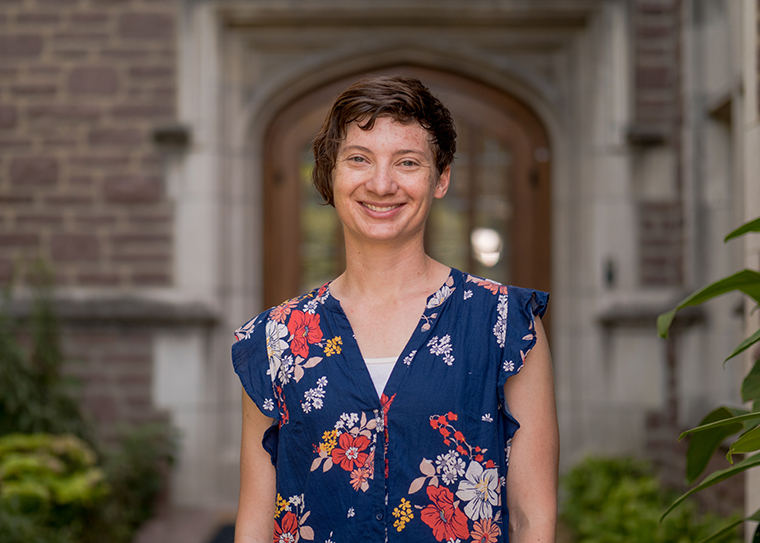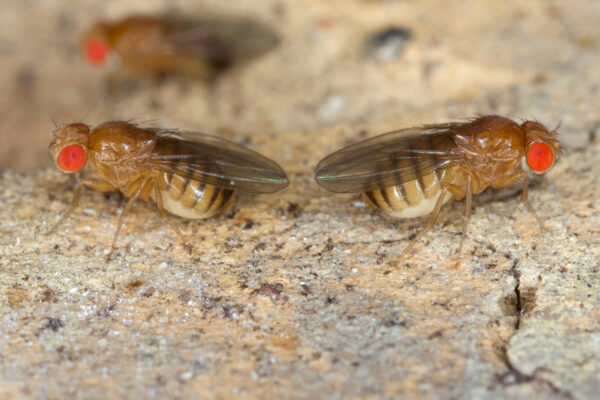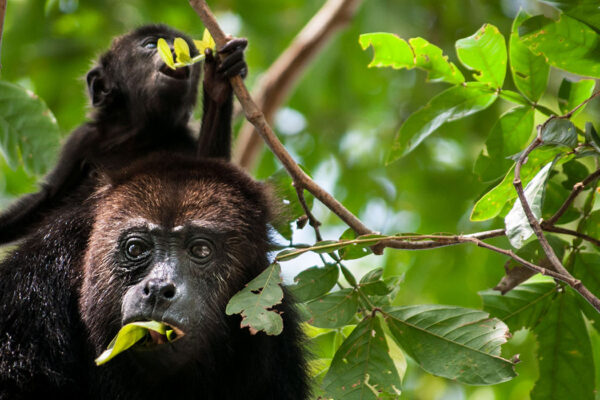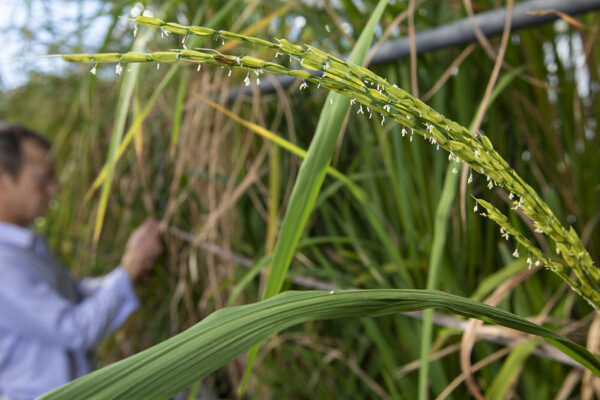Rachel Penczykowski, an assistant professor of biology in Arts & Sciences at Washington University in St. Louis, won a Faculty Early Career Development Program (CAREER) award from the National Science Foundation (NSF) for her project “Climate and Connectivity as Drivers of Pathogen Dynamics Within and Between Urban Plant Populations.” The highly sought-after NSF award is reserved for junior faculty who excel at mentoring while successfully integrating research and education.

Penczykowski’s project will look at the factors that drive fungal infections on common broadleaf weeds called plantains (Plantago lanceolata and Plantago rugelii).
The weeds themselves aren’t a valuable commodity — they often spring up in sidewalk cracks and unmaintained yards — but they can be a useful model for understanding the dynamics between plants and pathogens. The fungus, called powdery mildew, is important in its own right. “As a group, powdery mildews are significant plant pathogens of grains, grapes, and other crops,” Penczykowski explained.
By studying patches of plantains in a wide variety of local environments — including various parks in St. Louis and St. Louis County, Tyson Research Center in Eureka and the Shaw Nature Reserve in Gray Summit — Penczykowski hopes to understand the interplay of temperature, shade, genetics and other factors to explain why some plants are infested and others aren’t.
St. Louis and other cities are “heat islands” that tend to be warmer than surrounding areas, and that extra warmth might be contributing to outbreaks of powdery mildew. Through mathematical modeling, experiments and continued observations, Penczykowski hopes to understand how climate change might affect fungal infestations going forward. Warming temperatures could spur growth, but excessive heat might actually slow the fungus.
Read more from The Ampersand.


